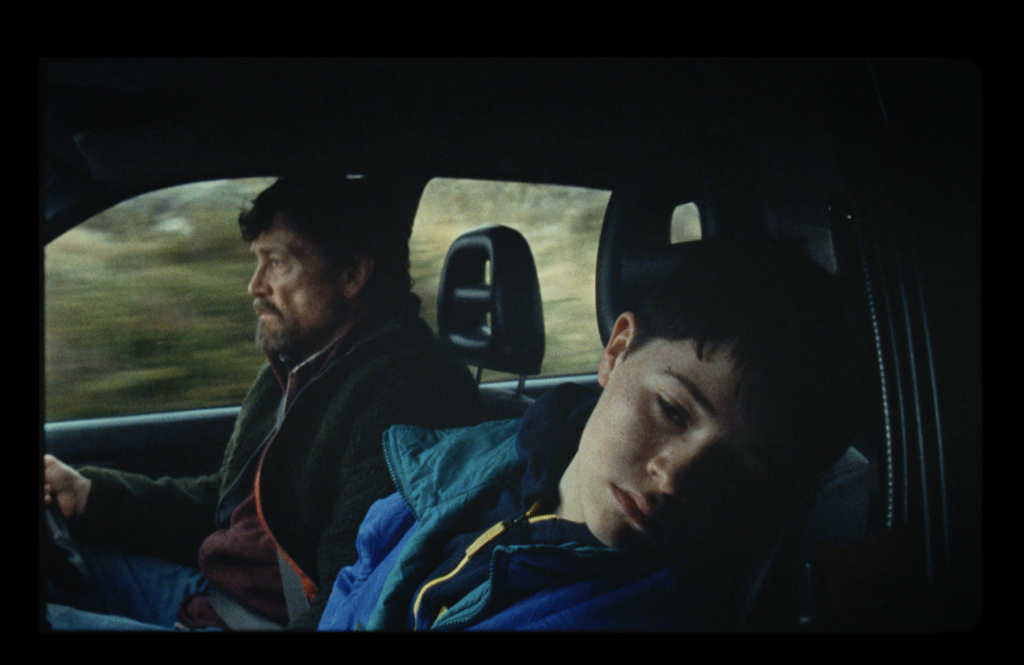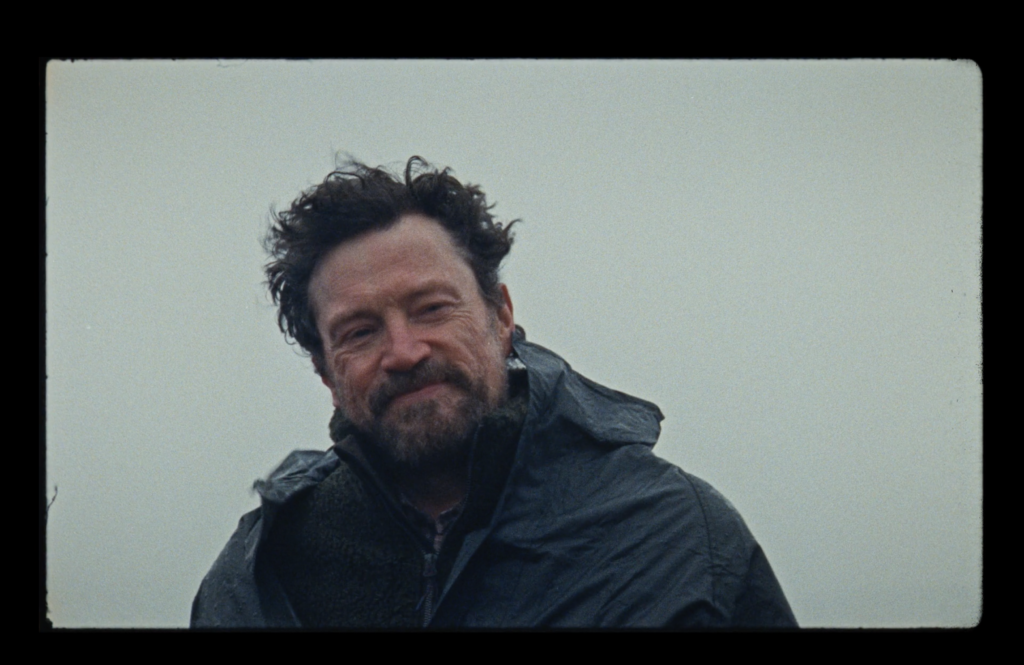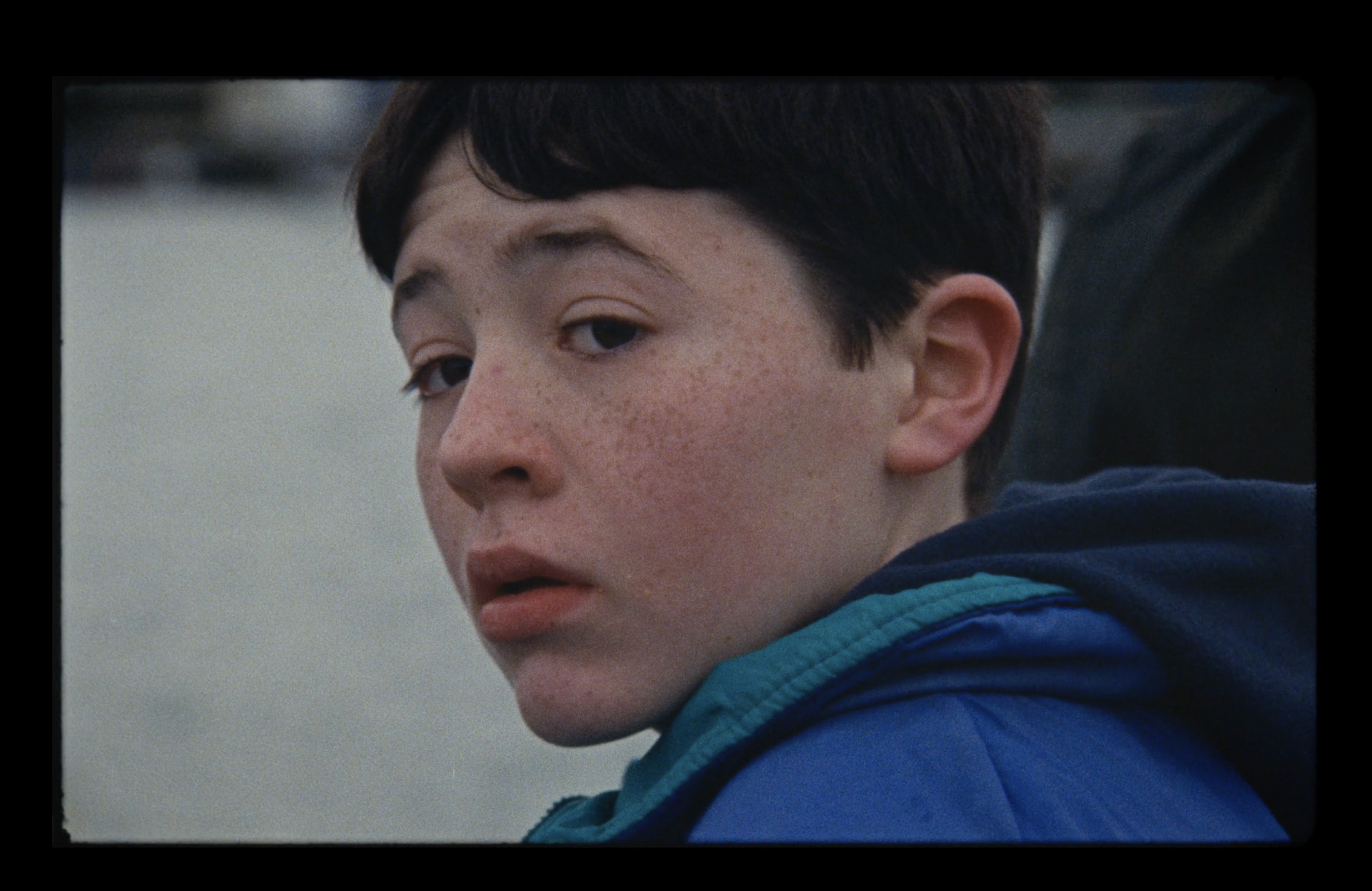Every father and son relationship is different. The “Ward Cleaver” image from 50’s American TV was a work of the Perfect Eisenhower era fiction. Father’s can show their love, sometimes in imperfect ways. TWO FOR THE RODE from Lochlainn McKenna is an award-winning short film about a parent and childhood bound manifesting itself in some irregular child rearing scenarios.
A Black and Paper interview with filmmaker Lochlainn McKenna.
The opening scene/shot sets the tone for the film and relationship, why did you choose this for the opening scene?
I used to spend the weekends driving all over Ireland with my Dad! I was in every county before I was 10. Ireland’s not a very big country but sometimes those drives might be 4 or 5 hours. He would pick me up on a Friday evening and then drive late into the night and stop somewhere secluded for us to sleep before morning. For me it made sense for the film to start on Saturday morning. I wanted the audience to wonder where this child was? Why is he asleep in a car? Who’s he with? It adds a sense of jeopardy to the story before we establish the narrative of the story.
A Weekend

What was the writing process like? Do you have any personal ties to the story line?
I wrote the original story ‘Guinness & Coke’ during the pandemic and that laid the foundations for the screenplay. It’s all based on my own childhood. There was certainly a lot of thought that went into the characters and the scenes and actions. I try to be as detail specific as possible in my filmmaking and I tried not to skimp on any details. The biggest difference between the short story and the film script is that, in the story, a lot of the dialogue is internal in Oscar’s head where as in the film there’s a lot more external dialogue. It was a case of using that external dialogue to better accentuate the narrative. That dialogue is necessary to push the story along.
Chaos, adventure, risking, experiencing life, I’m curious to know if this is how you would describe a weekend with your father?
I think you’ve hit the nail on the head. But there was also a lot of consistency, care, curiosity and companionship. Our weekends were always very physical. We were always doing. Whether that was exploring the countryside looking for old Celtic ruins or chasing thunderstorms… sometimes we’d traverse the coast looking for spider crabs. Other weekends we might be breaking rocks open looking for fossils. Some weekends we would play pool and go to the pub… sometimes motorbike rallies or airplane shows or go to the fair. It was very varied. There was a lot of camping.
Love does not come in a Perfect Box

There is the dynamic of the relationship switching to the son being the adult, looking after his father. Do you think the viewer has less sympathy for the father? My first thought was “Get that kid away from him”.
It’s always been my intention to make sure the father character isn’t vilified. I want the viewer to come out of the film feeling kinda conflicted. We should feel sympathy for the boy but also understand that the father is trying his best, despite wrestling with his own demons. There’s a lot of love between them, despite the obvious complexities. Naturally though, I think depending on people’s personal circumstances and their own relationships with their own parents or children, you’re going to have a strong reaction to it, right? And I think it’s great that you felt that strong a reaction. I don’t think anyone is watching the film and thinking, “ah, that’s fine, good for them”. But I think it’s a sliding scale as to how bad it all is really and I think that grey area is what makes the film intriguing.
How did you work with Eoin on the shooting style?
Eoin McLoughlin did such an outstanding job on this film, honestly. It just makes me so happy every time I watch it back, it’s exactly what I had hoped it would be. I always wanted the film to look and feel like a 90s memory. So the decision to shoot on 16mm was pretty much set from the outset. A big reference for me was Lynn Ramsey’s short film Gasman. There are these scenes in the pub where they use long lenses to pick off really natural moments of action which I just really loved and wanted to emulate. In general the thinking behind our approach was that whenever Oscar is feeling free and having fun we’re on long lenses. The camera is hand held, moving, roaming. When things get serious or dangerous for him, the camera is locked off, very static, very sharp and generally very wide.
Are you planning on making a feature film on the same subject?
I am! I’m currently writing a book which will be based on a number of other weekends with my Dad across a number of years. I’m hoping this anthology of stories will be the basis for the feature film script in due course.
TWO FOR THE ROAD has qualified for the 2023 Academy Awards Best Live Action Short.
